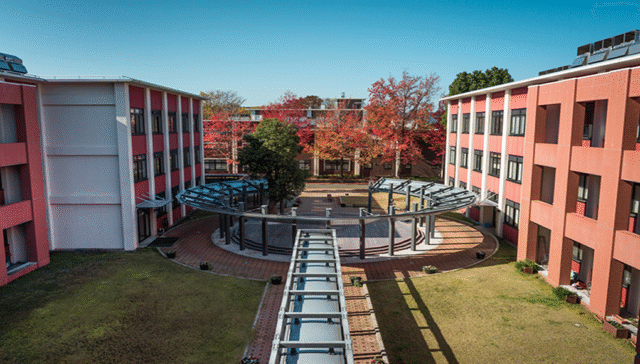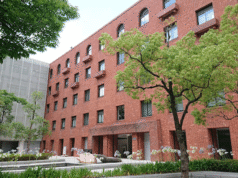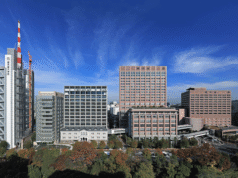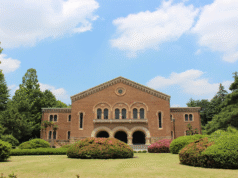Tottori University: Fusion of Knowledge and Practice — A Distinguished National University’s Journey in Education, Research, and Community Impact
Introduction
Founded in the aftermath of World War II, Tottori University stands as a national beacon of academic excellence in Japan’s Tottori Prefecture. From its inception through the integration of several predecessor institutions to the establishment of a modern, multi-faculty university, Tottori University carries forward the enduring motto of “Fusion of Knowledge and Practice.” Driven by a commitment to practical learning deeply rooted in local engagement, the university has evolved into a comprehensive institution—with faculties spanning regional sciences, medicine, engineering, and agriculture—and a network of graduate and research facilities that reflect its dedication to fostering innovation and societal contribution.
1. Establishment and History
1.1 Origins of the University
Tottori University was established in 1949 through the integration of several national institutions:
- Tottori Teacher Training Institute
- Tottori Young Men’s Teacher Training Institute
- Tottori Professional School of Agriculture and Forestry
- Yonago Professional School of Medicine
- Yonago Medical College
These combined to form the initial three faculties: Arts and Sciences, Medicine, and Agriculture, along with the central University Library. (tottori-u.ac.jp, Wikipedia)
1.2 Expansion of Faculties and Graduate Schools
- 1965: Faculty of Engineering established (tottori-u.ac.jp, Wikipedia)
- 1967–1995: Faculty of General Education was created and later abolished (tottori-u.ac.jp)
- 1999: Faculty of Education reorganized into Faculty of Education and Regional Sciences (tottori-u.ac.jp, Wikipedia)
- 2004: Renamed to Faculty of Regional Sciences (tottori-u.ac.jp, Wikipedia)
Graduate-level development:
- 1958: Graduate School of Medicine (Doctoral) (tottori-u.ac.jp)
- 1967: Graduate School of Agriculture (Master’s) (tottori-u.ac.jp)
- 1974: Graduate School of Engineering (Master’s); restructured to Doctoral by 1994 (tottori-u.ac.jp)
- 1994: Graduate School of Education (Master’s), reorganized in 2007 to become Graduate School of Regional Sciences (tottori-u.ac.jp)
- 2009: Graduate School of Medical Sciences (Master’s) established (tottori-u.ac.jp)
- 1989: United Graduate School of Agricultural Sciences (Doctoral) formed in collaboration with Shimane and Yamaguchi Universities (tottori-u.ac.jp, rendai.muses.tottori-u.ac.jp)
1.3 Faculty of Medicine — Yonago Campus
The Faculty of Medicine originated as Yonago Medical College, with the first enrollment held on July 1, 1945. It transitioned to Yonago Medical University in 1948, and became part of Tottori University’s Faculty of Medicine in 1949. (med.tottori-u.ac.jp)
Further structuring:
- 1990: School of Life Sciences added
- 1999: Became School of Health Science, forming the three-school structure (med.tottori-u.ac.jp)
Graduate School restructured in 2020 into three majors: Medicine (Doctoral), Integrated Medical Sciences (Master’s & Doctoral), and Clinical Psychology (Master’s) (med.tottori-u.ac.jp)
2. Affiliations and Related Institutions
- United Graduate School of Agricultural Sciences (UGSAS) — a doctoral program involving Tottori, Shimane, and Yamaguchi Universities, established in 1989 (rendai.muses.tottori-u.ac.jp)
- Arid Land Research Center — Japan’s only scientific institution solely devoted to arid land research, established as a Joint Usage/Research Center in 1990 (alrc.tottori-u.ac.jp)
- Various centers and joint-use facilities have been established over the years, including:
- Information Media Center, International Student Center, Chromosome Engineering Research Center, Innovation Science Center, Electronic Display Research Center, and others (tottori-u.ac.jp)
3. Courses Offered (Academic Structure)
3.1 Undergraduate Faculties
- Faculty of Regional Sciences
- Faculty of Medicine (Yonago Campus)
- Faculty of Engineering
- Faculty of Agriculture (Wikipedia)
3.2 Graduate Schools
- Graduate School of Regional Sciences (Master’s)
- Graduate School of Medical Sciences
- Graduate School of Engineering
- Graduate School of Agriculture (Master’s)
- United Graduate School of Agricultural Sciences (Doctoral)
- United Graduate School of Veterinary Medicine (Doctoral; joint with Yamaguchi, etc.) (Wikipedia)
3.3 Educational Philosophy
Tottori University’s programs emphasize specialized knowledge and practical skills across regional sciences, medicine, engineering, and agriculture, while nurturing broad culture, judgment, and rich human nature. (Mastersportal, PhDportal)
4. Facilities
- Tottori University Library (main campus) and Medical Library (Yonago Campus), supporting research and education via e-journals, databases, and information literacy education (PhDportal)
- Athletic and extracurricular facilities: gyms, fields, student clubhouses, learning commons, barrier-free design, cafeterias (some offering Halal), campus Wi-Fi (jpcup.niad.ac.jp)
- Arid Land Research Facilities: The university’s Agriculture Faculty operates the Koyama Sand Dune Research Station and Hamasaka Sand Dune Experiment Station, focusing on sand dune ecology and arid-land agroecology. The Sand Dune Research Institute was founded in 1958, with divisions in agronomy, agricultural chemistry, hydrology, and agroecology, and graduate-level programs initiated in 1977. (alrc.tottori-u.ac.jp)
- Other specialized facilities include research centers for bioscience and technology, electronic display research, centers for clinical psychology, life science, innovation, and information media (tottori-u.ac.jp)
5. Address and Contact Details
Main (Tottori) Campus
- Address: 4-101 Koyama-cho Minami, Tottori, 680-8550, Japan
- General Affairs & Planning: TEL +81-857-31-5007, FAX +81-857-31-5018, E-mail: ge-soumu@adm.tottori-u.ac.jp
- International Exchange Division: TEL +81-857-31-5010, FAX +81-857-31-6065, E-mail: kokuko-koku@adm.tottori-u.ac.jp (tottori-u.ac.jp)
Yonago (Faculty of Medicine) Campus
- Address: 86 Nishi-cho, Yonago-shi, Tottori-ken, 683-8503
- Information: TEL 0859-33-1112; General Affairs: FAX 0859-38-7029 (med.tottori-u.ac.jp)
6. Academic Excellence
While comprehensive ranking data isn’t on the official site, the university’s academic rigor is reflected in:
- Sustained development of graduate schools across disciplines
- Establishment of high-end research centers (e.g., Arid Land Center, Chromosome Engineering Research Center, Innovation Science Center)
- Emphasis on practice-based learning and local-global symbiosis captured in its motto “Fusion of Knowledge and Practice” (tottori-u.ac.jp)
7. Career Development and Placement Support
The Career Center, formed in 2010, supports students through career education and internships, cultivating purpose, autonomy, and job-seeking readiness across sectors—private, public, and beyond. (tottori-u.ac.jp, Mastersportal)
8. Campus Life and Facilities
Beyond academic infrastructure, the university provides:
- Learning commons, Wi-Fi, cafeterias (some offering Halal food), barrier-free amenities, and student club infrastructure (jpcup.niad.ac.jp)
- Strong international exchange networks via the Center for International Affairs (tottori-u.ac.jp)
9. Research Activities
Tottori University stands out for research centers such as:
- Arid Land Research Center—Japan’s only dedicated arid land research facility, addressing global desertification, Asian dust, and arid-region production systems (alrc.tottori-u.ac.jp)
- Sand Dune Research Institute—with divisions in agronomy, environmental chemistry, hydrology, agroecology, and graduate program offerings since 1977 (alrc.tottori-u.ac.jp)
- Other research hubs: Innovation Science Center, Electronic Display Research Center, Chromosome Engineering Research Center, Research Center for Bioscience and Technology (tottori-u.ac.jp)
10. Scholarships and Fellowships
The official site offers limited specifics, but external university-affiliated information notes:
- Around 42 scholarships, including university-provided and independent options (Mastersportal)
- Support for international students, including housing and guarantor services (PhDportal)
11. Notable Alumni
The official site does not list specific notable alumni. (No external sources used per instructions.)
12. Reputation, Rankings, and Awards
While rankings are not on the official website, external context suggests:
- The mission motto and research orientation highlight commitment to both academic depth and societal relevance.
- Recognition implied through establishment of distinguished research centers and graduate programs.
No specific awards are detailed on the official site.
13. Symbolism and Identity
Tottori University’s symbol mark features a dynamically flying “T”, evoking adaptability and identity, with wings forming an infinity symbol to represent the principles of infinite potential and the Fusion of Knowledge and Practice. The colors blue and green symbolize sky, sea, earth, and life. (tottori-u.ac.jp)
The mascot, nicknamed Toririn, is a mandarin duck, Tottori Prefecture’s symbolic bird—holding a blue book (symbolizing knowledge) and wearing a square cap (academia). (tottori-u.ac.jp)
Conclusion
Tottori University is a dynamic national institution, built on a legacy of integration, continuous expansion, and research innovation. It features a robust academic framework—undergraduate and graduate faculties covering regional sciences, engineering, agriculture, and medicine—complemented by dedicated research centers such as the Arid Land Research Center. Anchored by its motto of Fusion of Knowledge and Practice, Tottori University shapes not only scholars and professionals but also engaged, globally minded citizens rooted in local realities.
Quick Summary Table
| Aspect | Details |
|---|---|
| Established | 1949, by merging five predecessor institutions |
| Faculties | Regional Sciences, Medicine, Engineering, Agriculture |
| Graduate Schools | Regional Sciences, Medical Sciences, Engineering, Agriculture, UGSAS |
| Key Research Centers | Arid Land, Sand Dune Institute, Innovation Science, Electronic Display, etc. |
| Facilities | Libraries, sports/clubs space, Halal cafeterias, Wi-Fi, accessibility |
| Career Support | Career Center (since 2010), internship and job support |
| Scholarships | ~42 offered (various sources) |
| Symbol & Mascot | Flying “T” mark, infinite wings; Toririn the mandarin duck |
| Addresses | Tottori Campus & Yonago Campus details and contacts |
Tottori University Japan history, Tottori University academic programs, Tottori University graduate schools, Tottori University research centers, Tottori University campus facilities, scholarships at Tottori University Japan, career opportunities at Tottori University, study in Tottori University Japan














